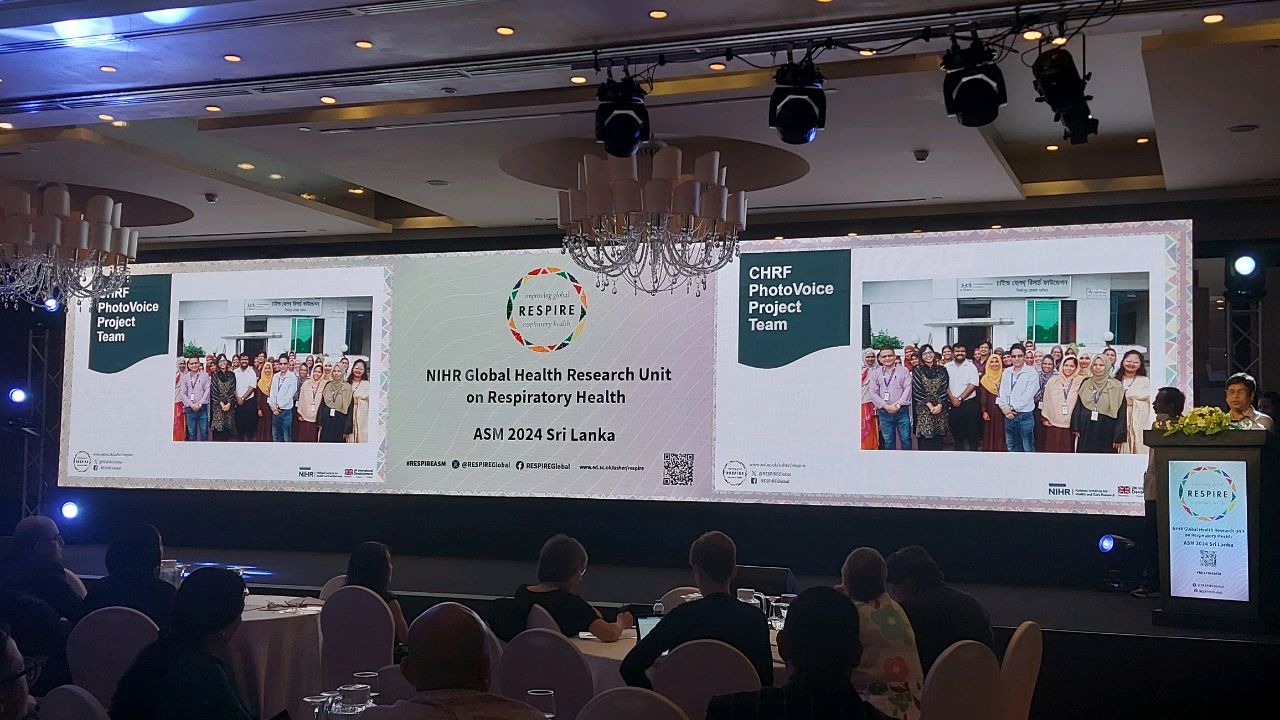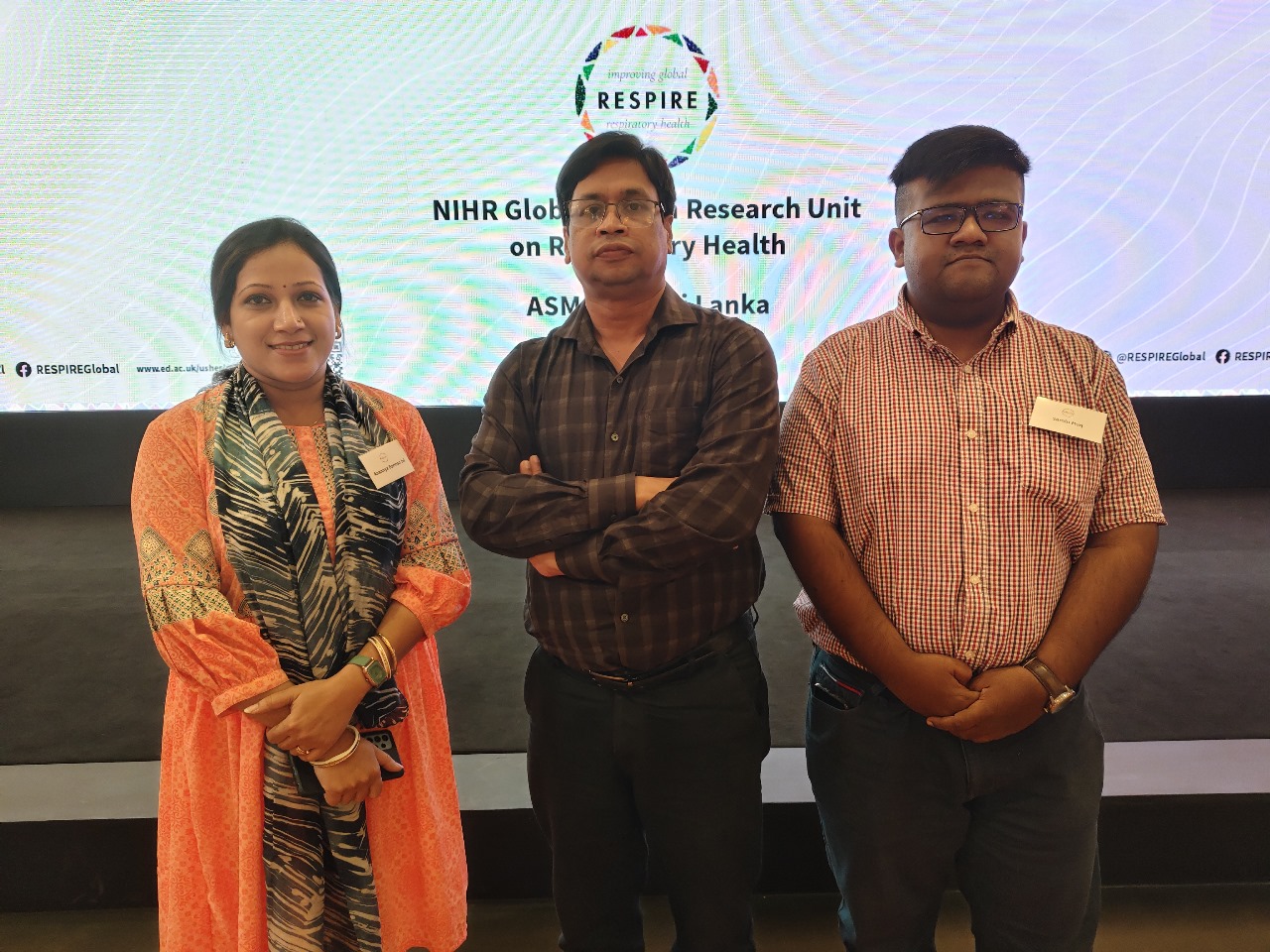
With the aim to improve respiratory health in low-and middle-income countries, RESPIRE– a Global Health Research Unit funded by the National Institute for Health and Care Research (UK) – strives to advance research on respiratory diseases and translate evidence into effective public health policies. CHRF is honored to be part of RESPIRE and three of our members - Dr Mohammad Shahidul Islam, Dr Anannya Barman Jui and Mr Samin Huq have participated in the RESPIRE Annual Scientific Meeting (ASM) 2024 in Sri Lanka to promote respiratory health in Bangladesh.
The RESPIRE ASM 2024 and RESPIRE-IPCRG Leadership School program took place from August 26th to 30th, gathering global health experts, researchers, and stakeholders to review progress, share knowledge, and collaborate on strategies for tackling respiratory diseases. The first day of the event set the stage with two key components: the Stakeholder Engagement Champion (SEC) meeting and the Leadership School.
Mr. Samin Huq joined the SEC workshop as a Stakeholder Engagement Champion, where he participated in discussions with representatives from India, Sri Lanka and Pakistan about the affordability and accessibility of chronic respiratory health treatments during ice-breaking sessions. Participants engaged in breakout sessions to explore how asthma is perceived in their respective countries and it became clear that the level of attention given to asthma and other respiratory diseases varied widely on national health agendas.
Meanwhile, Dr. Anannya Barman Jui embarked on her journey through the Leadership School workshop, which focused on enhancing leadership skills in health & research initiatives. Throughout the workshop, Dr. Jui gained insights into managing research teams, communicating effectively with diverse audiences, and perhaps most importantly, addressing the unique challenges that leaders in low-resource communities face. These skills are crucial for effectively translating research outputs and bridging the gap between scientific research and community health outcomes.
One of the key challenges highlighted during the discussions was the persistent struggle in addressing chronic respiratory diseases. Patients dealing with these conditions often face social stigma, lack sufficient information, and have limited access to healthcare support. Many of the patients also hesitate to attain their healthcare needs at the primary stages and often end up visiting hospitals with multi-morbidities, which leads to complex and expensive treatment plans, resulting in financial impoverishment. Action plans to address respiratory health challenges are rarely implemented as they are resource-intensive. It is within this context that the Photovoice project shines.
On the first day of the ASM meeting, Dr. Mohammad Shahidul Islam emphasised the importance of this initiative in Bangladesh and showcased his presentation titled “The Updates of Photovoice”. The Photovoice project, implemented by the partners of RESPIRE, aims to raise awareness and engage both policymakers and stakeholders on the experiences of respiratory diseases. Through photography, it empowers individuals living with chronic respiratory conditions to visually document their personal experiences, challenges, and perspectives. By allowing participants to tell their stories through images, Photovoice humanizes the data and presents it in a way that is both accessible and emotionally resonant. Dr. Shahidul highlighted how Photovoice not only raises awareness but also sheds light onto the local perspectives, ensuring that the voices of the most affected are heard. This approach could be key to creating effective & sustainable health interventions.
In addition to Dr. Shahidul's presentation, the meeting featured a discussion on the topic of “Gender & Inclusivity of Research,” which emphasized the importance of achieving a balanced gender contribution in research efforts. This is vital for fostering innovation, improving outcomes, and making research reflect a wider range of experiences. The representation of CHRF at the RESPIRE ASM 2024 highlights our ongoing commitment to advancing respiratory health in Bangladesh and beyond. Through collaboration and shared knowledge, we aim to make a meaningful impact on the health outcomes of communities affected by respiratory diseases.

